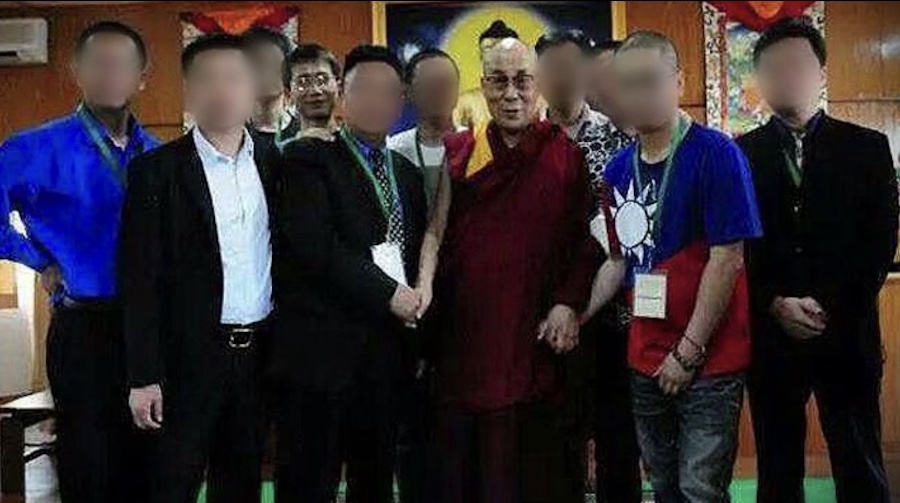China’s new offensive on Tibet may demand a different strategy in reply, writes Tibet scholar Warren Smith.
Following is an excerpt from testimony at the Congressional Executive Commission on China (www.cecc.gov) on March 10, 2009.
By Warren W. Smith
China’s current policy on Tibet is based on the principle that Tibet is not an issue of “human rights, ethnicity or religion,” but rather a fundamental issue of China’s sovereignty over Tibet. This means that China does not believe that the Dalai Lama has really given up Tibetan independence as a goal.
The Dalai Lama’s Middle Path policy, by accepting Chinese sovereignty over Tibet, assumes that other issues of Tibetan autonomy, like human rights, ethnicity and religion, can then be discussed. However, China says that Tibetans already have autonomy based upon their ethnicity and they have human rights and freedom of religion; therefore, these are not subjects for discussion.
China’s experience has been that whenever it has allowed even minimal autonomy it has led to a revival of Tibetan separatism. In contrast with foreign critics who wonder why China does not realize that autonomy is in China’s best interest, China knows that autonomy is not in its best interest.
China cannot allow the existence of a separate national entity within its national territory. The solution to the Tibet issue is not autonomy but the traditional Chinese solution of repression of Tibetan national identity and economic development accompanied by colonization.
China has clearly indicated that it will not engage in dialogue with the Dalai Lama about Tibetan autonomy. The March 2008 uprising produced international pressure on China to dialogue, which it pretended to do in May and July. This was sufficient to defuse threats of some international leaders to boycott the Olympic opening ceremony.
Since then, after another meeting with the Dalai Lama’s representatives in November, Chinese officials have scornfully rejected any dialogue about Tibetan autonomy. China clearly imagines that it won the propaganda battle about Tibet that began in March and it has since begun an unprecedented diplomatic offensive.
This offensive is based upon the belief that Western countries do not really care about Tibet and are only exploiting the issue to denigrate China and prevent its rise to its rightful status as a great world power. China believes that Western countries will not jeopardize their diplomatic and economic relations with China for the sake of Tibet.
Tibet has always been an issue of extreme sensitivity for China. The uprising of 2008 and the protests against the Olympic torch relay aroused a strongly nationalistic reaction among the Chinese people. In the past, China has often imagined that the Tibet issue was resolved and has reacted with surprise when Tibetans reveal that they are still not reconciled to Chinese rule and that they still revere the Dalai Lama. They were surprised again in 2008.
More Chinese clout
The difference this time is that China feels it has the economic and political clout to mount an offensive of its own to coerce international acceptance of its position on Tibet.
China has always reacted strongly to the Dalai Lama’s international travels and world leaders’ meetings with him. However, it has typically made angry statements about “hurting the feelings of the Chinese people” but has not allowed any such incidents to damage its relations with other countries.
This situation began to change in 2007 when several important countries’ leaders, including those of Austria, Germany, Australia, Canada and the United States met with him officially for the first time. In the United States he was awarded the Congressional Gold Medal and in Canada he was made an honorary citizen. China singled out Germany for economic pressure and demanded that it apologize in order to restore good relations.
France was the next subject of China’s ire after French President Sarkozy threatened to boycott the Olympic opening and Paris was the site of one of the worst protests against the Olympic torch. Sarkozy declined to meet with the Dalai Lama in August when the Dalai Lama was in France, but he did so in November at a meeting of Nobel Prize winners in Poland. China reacted in an unprecedented manner, canceling an already scheduled and important economic summit with European leaders.
China’s cancellation of the European meeting may in the future be seen to have been the first move in its new offensive on Tibet. Tibetans and their Western supporters thought that the 2008 uprising put them on the offensive.
But China’s belief that it won the subsequent propaganda battle convinced the Chinese leaders that they could take a more aggressive position on Tibet. China now seems to be willing to demand that other countries adhere to its position on Tibet at the risk of damaging their good relations with China.
New offensive
Recent articles in the Chinese press have suggested that not only must other countries not criticize China about Tibet but they must revise their beliefs about the issue. The precedent for this new strategy is China’s coercion of almost all countries in the world to adhere to its “One China” policy in regard to Taiwan.
China’s recent propaganda indicates that it will similarly require conformity to its view on Tibet as a price for good relations and it will use its political and economic power to enforce this demand.
China was successful in its campaign to coerce conformity to the “One China” policy. Now, it clearly imagines that this is also the solution to the Tibet issue. The tone of much of recent Chinese propaganda reveals a confidence that China now has sufficient economic and political power to coerce international conformity to its position on Tibet.
China has gone on the offensive about Tibet. Western countries previously supportive of Tibet may be vulnerable to China’s coercion. China has resisted the offensive mounted by Tibetans and their supporters to convince it to engage in dialogue with the Dalai Lama. China has countered with its own offensive, and supporters of Tibet may have to go on the defensive to oppose China’s coercive strategy.
Tibet’s supporters, including those in the United States, may have to contemplate a shift in their own strategy from the futile attempt to put pressure on China to engage in dialogue to a defense against China’s new diplomatic offensive.









